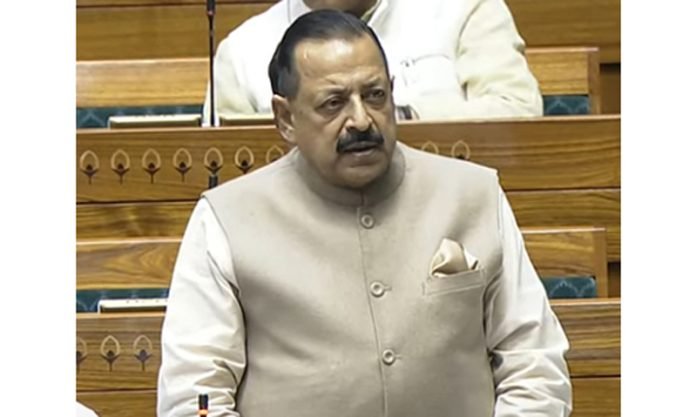Union Minister of State for Science and Technology, Earth Sciences, and various departments, Dr. Jitendra Singh, on Wednesday, shared significant updates on the government’s efforts to improve grievance redressal mechanisms in the country, with a focus on accessibility for rural citizens.
In his statement to the Lok Sabha, Dr. Singh highlighted the notable progress made through the CPGRAMS (Centralized Public Grievance Redress and Monitoring System) portal, citing a progressive decline in grievance redressal time. He revealed that more than 28 lakh citizens from 795 districts have been registered on the portal, with an average of 70,000 new registrations every month. The Minister emphasized the importance of collaboration with Common Service Centres (CSC) to extend the reach of grievance redressal services, particularly in remote rural areas.
Key Developments in Grievance Redressal:
- 28 Lakh Citizens Registered: Over 28 lakh citizens from 795 districts have successfully registered on the CPGRAMS portal, ensuring their access to timely grievance redressal.
- CPGRAMS 10-Step Reform: The government has introduced a 10-step reform to enhance the functionality of CPGRAMS, which includes:
- Regional language support on the portal
- Citizen engagement through feedback call centers
- Simplified registration process
- Launch of the CPGRAMS mobile application
- Focus on Rural Outreach: Collaborations with CSCs, leveraging Village Level Entrepreneurs (VLEs), have enabled the resolution of 4.68 lakh grievances in 2023 and 2024. Furthermore, the 20th of every month is now observed as CSC-CPGRAMS Day, aiming to enhance awareness among rural populations, particularly those involved in farmer-centric schemes such as PMAY (Pradhan Mantri Awas Yojana) and PM-KISAN (Pradhan Mantri Kisan Samman Nidhi).
- Improved Pension Grievance Redress: Through the Centralized Pension Grievance Redress and Monitoring System (CPENGRAMS), the government has successfully reduced the backlog of pension grievances. As of now, no case has been pending for over two years. Between November 2022 to October 2024, 168,964 grievances were resolved.
Pension Grievance Redressal:
Dr. Jitendra Singh also shared details about targeted efforts to resolve pension grievances, especially those related to family pensioners and super-senior pensioners. Specific categorization of such grievances, including delays in starting family pensions and additional pensions, has been implemented for more effective monitoring.
The government’s 100-day action plan has been instrumental, with a month-long Special Campaign launched in July 2024 achieving 94% redressal for family pension grievances. Regular reminders and monthly Inter-Ministerial Review Meetings (IMRMs) have been conducted to track progress, ensuring the timely resolution of pension issues.
Key Policy Changes and Initiatives:
- Decentralized Redressal Mechanism: As per policy, pension grievances are redressed in a time-bound manner by the concerned Ministries/Departments, and interim replies are provided for cases that are not resolved within the prescribed timelines.
- Quality of Redressal Monitored: The quality of grievance redressal is consistently monitored through feedback centers. If a case is rated poorly, appeals are filed to ensure accountability and prompt resolution.
- Emphasis on Timely Resolution: The Department has revised its policy to ensure final redressal of grievances within 21 days, down from the previous 30-day timeline. This change reflects the government’s commitment to improving efficiency and service delivery.
Looking Ahead:
The government’s focused efforts on grievance redressal are part of a broader initiative to enhance citizen engagement and accessibility, especially in rural and remote areas. By integrating technology, simplifying processes, and collaborating with local partners like CSCs, the government aims to provide efficient, transparent, and timely resolution of public grievances.




